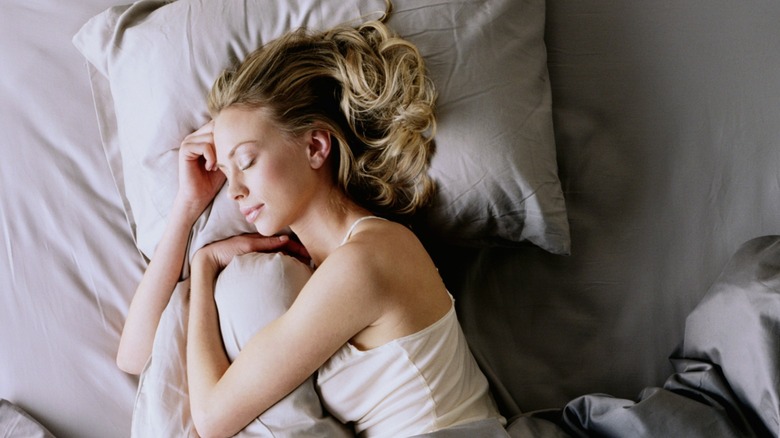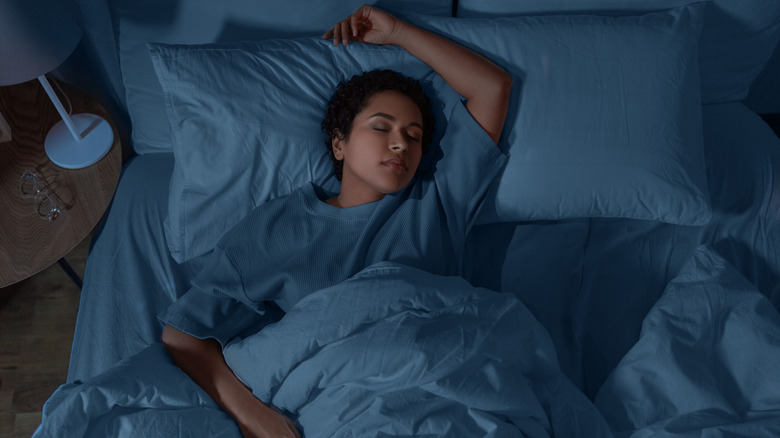A Good Night's Sleep Can Actually Prevent Your Hair From Shedding. Here's Why
Sleep is absolutely vital for a healthy body and mind. Getting a standard eight hours of sleep can have many benefits for you. For example, it helps your immune system and allows you to fight infections easier. Sleep will also increase your mood and help you feel less irritable. It can even keep blood sugar from getting too high, keep your heart healthy, and raise your libido.
But that's not all. A good night's rest can help with hair growth. Hair shedding is a very normal thing — it quite literally happens to everyone, every single day. However, if you notice your hair falling out faster than usual, it can be tied to stress. Plenty of sleep can help combat the stress and hair shedding you're experiencing, all because of the hormone in control of your sleep cycle: melatonin. Melatonin is created naturally by your body, but it can also be applied topically to your scalp to stimulate hair growth if needed.
How sleep and melatonin create healthy hair
Melatonin not only controls the circadian rhythm, it's also thought to play a big role in hair growth as your hair follicles contain receptors specifically for melatonin, according to the Birmingham Dermatology Clinic. There are three phases in the hair growth cycle: the anagen stage, the catagen stage, and the telogen stage. Hormonal changes are one of the main reasons why hair falls out, and if you do not get enough sleep at night, the hormonal changes that this causes in your body can switch your hair follicles to the telogen stage. The telogen stage is when hair sheds.
According to a 2012 study published in the International Journal of Trichology, when applied to the scalp, topical melatonin can help stimulate hair growth and extend the anagen stage, which is the stage when hair grows. Getting enough shuteye can also keep your hair from becoming too oily, as stress and sleep deprivation increase the hormone cortisol, which in turn causes greasier hair. More sleep means more melatonin and less cortisol, keeping your hair looking its best and growing well.
How to get a good night's sleep
Vitamins B and C are supposed to help with hair health, so if you struggle with hair loss, you should consider adding them to your diet. You can also do things to help you sleep better and, in turn, help with hair growth. For example, you should wake up and fall asleep at the same time each day if possible. This will help your melatonin-controlled circadian rhythm, which helps regulate the hair growth process.
You should also keep your room dark and cool — temperature-wise, not decor-wise. Around 65 degrees Fahrenheit is recommended. You may also want to look into using essential oils like lavender to help you sleep better. Lavender is also tied to helping hair growth but must be diluted before application to the scalp.
If you are noticing more significant hair loss and are not sleeping well, consider these ways to improve your sleep routine and get your hair growth back on track.


